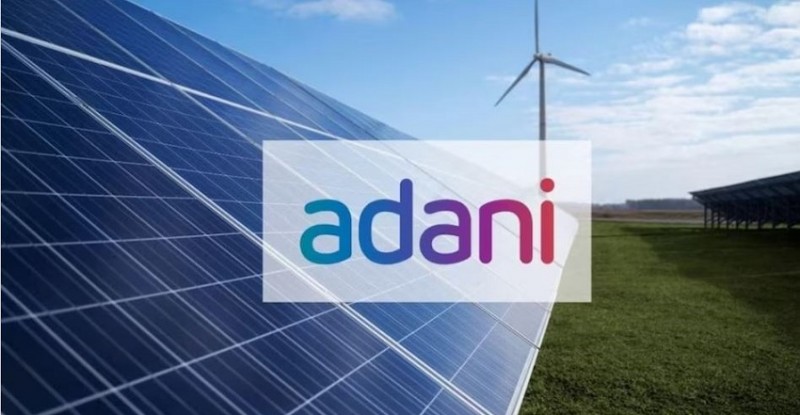
Khavda: Adani Green Energy Limited (AGEL) has successfully launched its first 250 MW wind capacity at the Khavda Renewable Energy Park in Gujarat. This milestone brings the total operational capacity of the Khavda plant to 2,250 MW, underscoring AGEL’s dominance in the renewable energy sector with a total operational portfolio of 11,184 MW across India.
Wind energy is crucial to India's energy strategy, as it complements solar power, which is generated during the day, with wind energy typically harnessed at night. This combination helps maintain a steady supply of renewable energy and enhances grid stability. Wind power also supports the renewable energy baseload when paired with storage solutions.
Khavda is renowned for its excellent wind resources, with average wind speeds around 8 meters per second. The plant features some of the world’s largest onshore wind turbine generators (WTGs), each with a capacity of 5.2 MW. These turbines, with a rotor diameter of 160 meters and a tip height of 200 meters—equal to the height of Gujarat’s Statue of Unity—are designed to maximize land use efficiency, resulting in higher energy output and lower energy costs.
Manufactured using advanced German technology at Adani New Industries Limited’s (ANIL) facility near Mundra port, these turbines reflect AGEL’s commitment to supporting the 'Made in India' initiative and fostering an indigenous supply chain.
The transformation of Khavda from barren land to a renewable energy hub is notable. The plant can now power 16.1 million homes annually. With its expertise in large-scale renewable projects and a robust supply chain network, AGEL is well-positioned to lead in the global clean energy sector.
The Khavda plant, spanning 538 sq km—five times the size of Paris and nearly as large as Mumbai—is set to become the largest power plant globally, regardless of energy source. It benefits from high solar irradiation (approximately 2,060 kWh/m²) and excellent wind resources.
Prior to development, AGEL conducted comprehensive studies including geotechnical investigations, seismic and centrifuge studies, resource assessments, and environmental impact assessments over five years. The infrastructure includes 100 km of roads, 50 km of drainage, and three reverse osmosis plants providing 70 cubic meters of drinking water per hour.
Additional developments include 180 km of optical fiber cables, concrete batching plants, and a township for over 8,000 staff featuring medical facilities, shopping areas, and leisure activities.
AGEL’s successful execution of this project involves collaboration with various specialized partners. This includes turbine supply by ANIL, transmission network development by Adani Energy Solutions (AESL), and logistic solutions from Adani Ports and SEZ (APSEZ). Advanced technology will feature prominently, with 5.2 MW WTGs, bifacial solar PV modules, and horizontal single-axis trackers for optimal energy capture.
The Energy Network Operation Centre (ENOC), integrated with AI and ML, will oversee real-time operations and monitoring. Adani Infra is tackling terrain challenges with innovative solutions, including underground stone columns and corrosion-resistant coatings for long-term durability.
In addition to its energy initiatives, AGEL is committed to community development, focusing on education, health, women empowerment, water conservation, and infrastructure improvements across local villages as part of its ESG (Environmental, Social, and Governance) efforts.
Latest Updates: